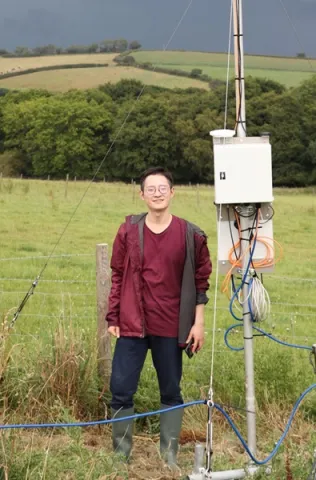About the project
This PhD investigates how Ethiopia and Kenya’s khat economies adapted after the UK ban, combining Earth observation, AI, and economic modelling to assess resilience in livelihoods, land use, and ecosystems. Using satellite data and socio-economic analysis, it reveals how global drug policies reshape rural development, sustainability, and agricultural transitions.
This PhD explores what happened after the UK banned khat (Catha edulis) in 2014, a plant once legally traded and vital to millions of farmers in Ethiopia and Kenya. Did cultivation decline, shift underground, or evolve into new forms? How have farmers, communities, and ecosystems adapted to this major policy shock?
You will investigate these questions by combining remote sensing, artificial intelligence (AI), and development economics to trace how land use, livelihoods, and resilience have changed over the past decade. Using satellite high-resolution satellite imagery, you will map the spatial and temporal patterns of khat cultivation and identify where production has expanded, contracted, or transitioned to alternative crops. You will then integrate trade statistics, climate data, and socio-economic surveys to understand the drivers of change and test how environmental and economic resilience interact.
This project offers hands-on training in Earth observation, machine learning, and spatial data analysis, working with supervisors who are experts in AI for environmental science, global development, and agricultural policy. You will join an interdisciplinary research environment linking data science with social impact, supported by collaborations across University of Southampton’s School of Geography and Environmental Science and Economics of University of Southampton and University of Exeter.
Your findings will provide the first comprehensive picture of how global drug policies ripple through rural economies and ecosystems, offering insights that can inform fairer trade, sustainable development, and resilience-building strategies across East Africa.
Additional technical training or support
The supervisory team will provide training sessions in artificial intelligence (AI), covering both classic decision-tree-based machine learning and deep learning techniques. Students will also receive hands-on guidance in geospatial data analysis using tools such as Google Earth Engine for searching, processing, and analysing satellite imagery.
Additional training will strengthen programming proficiency, statistical analysis, and analytical writing skills. These technical sessions will complement the bespoke training curriculum of the doctoral programme, ensuring the student gains the expertise required to apply advanced data science methods to real-world environmental and socio-economic challenges.
Supervisors
As well as Dr Songyan Zhu (lead supervisor), Dr Monica Beeder and Professor Jadu Dash from the University of Southampton, you will also receive supervision from Dr Han Lin from the University of Exeter.
References
[1] Beeder, Monica, et al. "Effects of jobs on ethnic switching–Evidence from a field experiment in Ethiopia." The Journal of Development Studies (2025): 1-18.
[2] Zhu, Songyan, et al. "UFLUX-GPP: A cost-effective framework for quantifying daily terrestrial ecosystem carbon uptake using satellite data." IEEE Transactions on Geoscience and Remote Sensing (2024).


